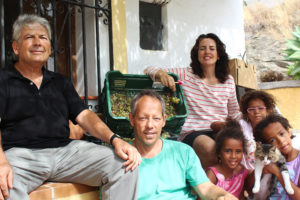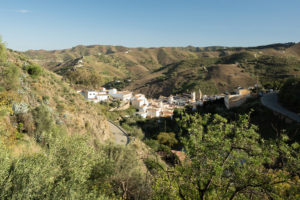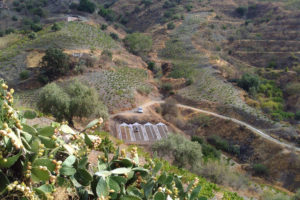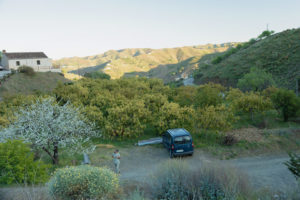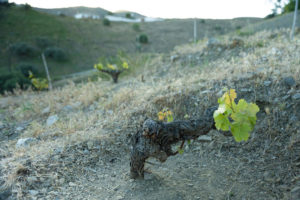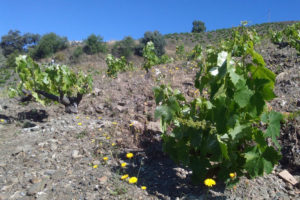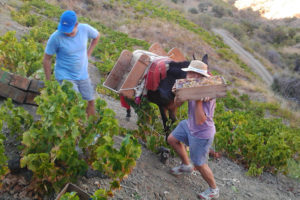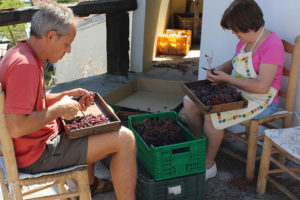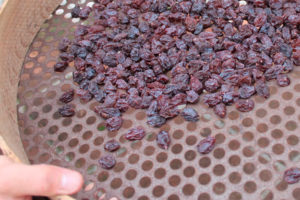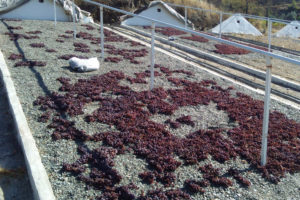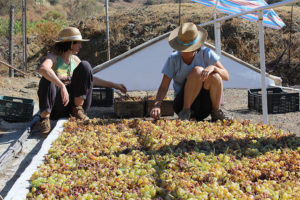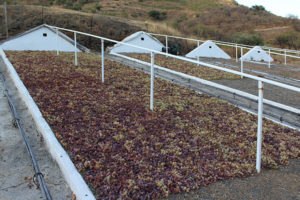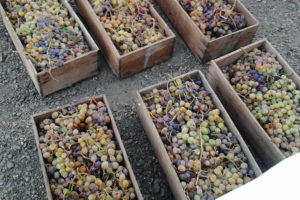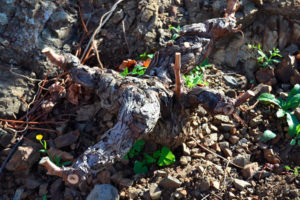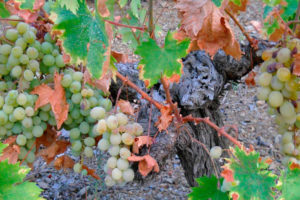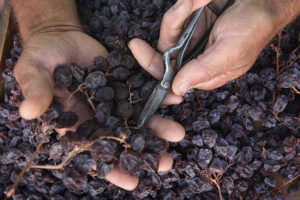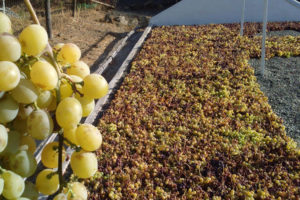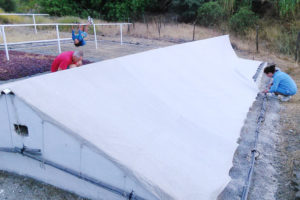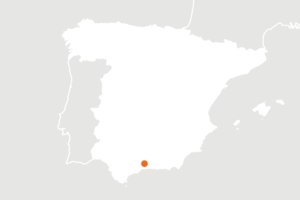Carlo Sacchiero & María Ocaña
Location: El Borge in Axarquía, Málaga
Products: Moscatel de Alejandría raisins, avocados, lemons, carob
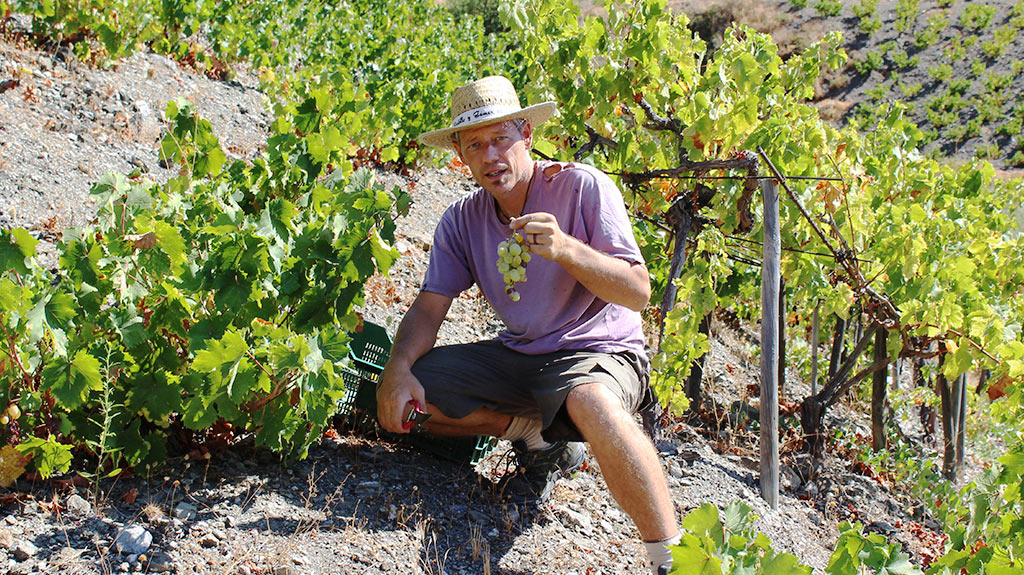
Raisin production has been taking place in Axarquía for centuries, continuing regardless of changes in culture and rule, and its methods and have altered little over that time. The growing and preparation of sun-dried Muscatel grapes in the most mountainous area of Málaga plays an important role in the region’s economy, as it can be carried out on steep slopes where no other agricultural work is possible.
The family project of María and Carlo is a place where they grow grapes, other sub-tropical fruits and crops for their own consumption. Originally from Madrid, one of the largest urbanised areas in Spain, the couple’s environmental awareness led them towards a different way of living – and to venture into this project which they combine with outside work. They have learned everything here, and continue to study. As Carlo says: “I’ve been doing a master’s degree for 7 years, and I’m still learning.”
“When I want to, I can put my hands in the soil; this direct contact is very powerful and before I couldn’t do it.”
The guiding principles of the farm are based on Permaculture, with no digging or ploughing taking place. All day-to-day all work, such as visually inspecting grapes one-by-one to ensure they are in good condition, is carried out by hand. María and Carlo belong to the Regulatory Council for Protected Designation of Origin Raisins in Málaga, and the programme for the prevention of soil erosion.
The farm’s greatest treasure is the Muscatel grape, a special and unique variety which almost nobody grows organically, producing a large raisin with a deep and fruity flavour. Grapes are grown on a rotating two-hectare piece of land, with the rest of the farm left for regeneration, and after three days of harvesting are carried by hand from the field and dried. This drying is carried out at the same time for the whole harvest, to ensure a consistent process and the best possible quality of raisin.
Maintaining this system of grape production and sun-drying is an essential part of managing the land; it prevents erosion, desertification and the overuse of water often caused by conventional crops. As in many parts of Málaga a big concern is the shortage of water, but Carlo and María try to work with this disadvantage. As Carlo explains: “here is an avocado tree that has dried up, but from it another, more adapted tree will grow, such as a carob tree. In nature everything tends to balance out.”
“We call it ‘heroic viticulture’.”
